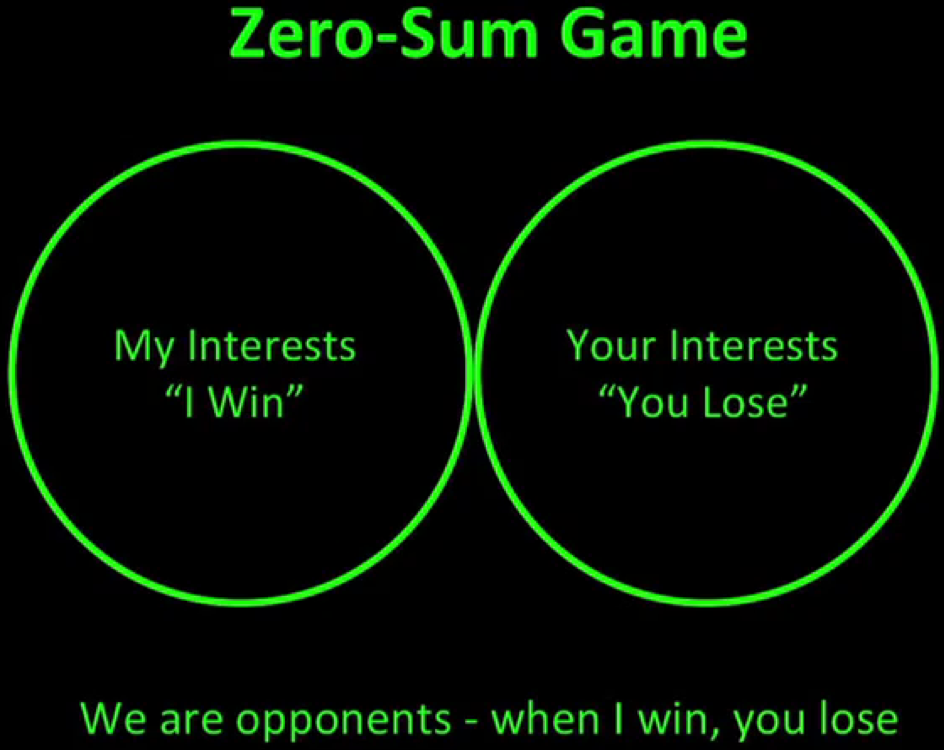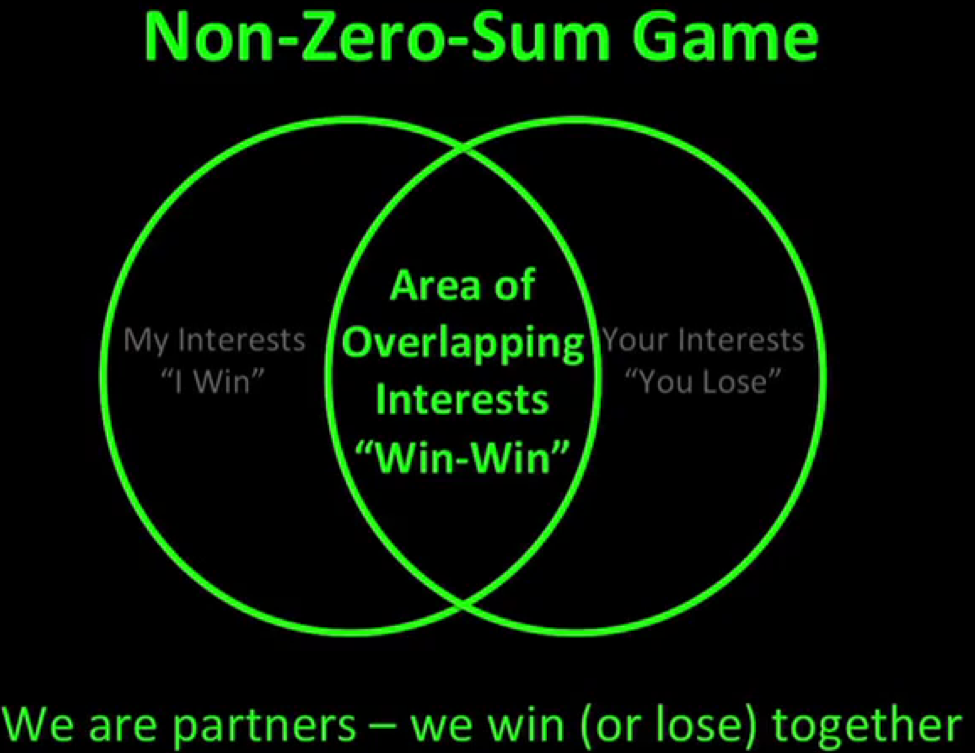Coop First: non-zero-sum games are reshaping our digital world
 When you think of a game, what springs to mind?
When you think of a game, what springs to mind?
Do you imagine winners and losers? Levels and leaderboards? Vast landscapes to explore? Friends gathered around a table? People working together achieve something bigger?
 In game theory, there are two basic types of games: zero-sum games where players are opponents, with clear winners and losers – and non-zero-sum games where players are partners who win and lose together. You can see these game types in action on playgrounds (and boardrooms) around the world — boys love to play zero-sum games that involve rank-ordering within a pack, while girls gravitate towards non-zero-sum games that involve building and maintaining relationships. For more background on this, check out Deborah Tannen’s brilliant, insightful book You Just Don’t Understand – it documents how boys and girl use language to negotiate these different types of play.
In game theory, there are two basic types of games: zero-sum games where players are opponents, with clear winners and losers – and non-zero-sum games where players are partners who win and lose together. You can see these game types in action on playgrounds (and boardrooms) around the world — boys love to play zero-sum games that involve rank-ordering within a pack, while girls gravitate towards non-zero-sum games that involve building and maintaining relationships. For more background on this, check out Deborah Tannen’s brilliant, insightful book You Just Don’t Understand – it documents how boys and girl use language to negotiate these different types of play.
The world of gaming – both online and offline – is filled with zero-sum games that involve battles, prizes, rank-ordering, and clear winners and losers. Score-keeping is a deep and interesting part of these games – and is at the heart of what makes team sports so engaging and fun to watch and discuss, as well as to play.
If you look at the world through a non-zero-sum lens, you see that building partnerships and relationships is a fundamentally different kind of game to play – one that has the potential to GROW THE PIE for everyone, rather than dividing up a finite pie amongst the winners. Think about a barn-raising, a quilting bee, a charity walkathon, a bunch of kids playing hopscotch — group activities with rules and goals and a quantifiable outcome that everyone enjoys together. These games have scoring systems – but the score isn’t the main point; it’s more about the group effort, and the relationships built by playing together.
So what happens if you put head-to-head battles and rank-ordering on the back burner, and think Coop First? What gaming systems and features actually get people working together to achieve something greater than themselves? What playful activities can you imagine where people are partners, rather than opponents? That’s the vein I’m mining, and in the next few blog posts I’ll share my current answers to those questions.
But first – what do YOU think? What collaborative and collective action systems have you seen lately that impressed you? Are you working on anything along these lines? I’d love to hear your thoughts.
November 11, 2012 @ 8:10 pm
We’re looking at this question a lot at my company because we’re building exercise focused motion games. Motion games can solve the problem of making the current 20 minutes enjoyable, but they don’t do a lot to motivate you to lace up your shoes and start in the first place. To solve that we need an additional layer of motivation and game mechanics. And that’s where we see cooperation being extremely powerful*. Imagine asynchronous multiplayer game contexts where if you don’t do your workout session you’re actually letting down your other friends who you have shared game objectives with. Interested to see your thoughts on the subject in the coming weeks.
* Competitive game play of course works for some but that’s a solved problem – see “sports”
Links for January 3, 2013 | Andrzej's Links
January 3, 2013 @ 4:27 pm
[…] Coop First: non-zero-sum games are reshaping our digital world | Amy Jo Kim […]
A Syllabus for User Experience
January 3, 2013 @ 7:32 pm
[…] Next up was Amy Jo Kim, talking about collaboration in game and expereince design. I don’t have those slides either, but she’s writing a lot about it on her blog. […]
February 21, 2014 @ 1:04 am
I am not sure wheгe you’rе getting your info, but good topic.
I needs to spend some time learniոց muccɦ more or unԀerstanding more.
Thanks for excellent info Iwas looking for this information for my mission.
February 21, 2014 @ 6:48 am
I absolutely love your blog and find a lot of
your post’s to be precisely what I’m looking for.
can you offer guest writers to write content for you? I wouldn’t mind composing a post or elaborating on
many of the subjects you write concerning here.
Again, awesome site!
Winning isn't everything - demotivating by allowing a win state
April 3, 2014 @ 9:40 am
[…] Make sure that you have a plan that either extends the life of your gamified system (possibly indefinitely) so that a single win is not the end for me, or that your system has a real reason for me to stay! Think non zero sum…. […]
March 16, 2018 @ 3:12 am
I’ve started a game that allows players to exchange a little bit of reward to eachother.
It’s unsurprising to see the winner always pity the loser because they’re happy and feel the opponent is inferior but the loser will only reward the winner roughly 40% of time if they feel the game was fair and fun.
January 4, 2023 @ 12:13 am
The Super Nintendo era was such a great time to grow up in the former United States of America. The early 90’s was a great time to be a kid! It really surprises me how 16-bit game design has not caught on like the over used retro 8-bit has. I was hoping games would start to graduate to the 16-bit era of nostalgia but it has not. Hopefully soon.